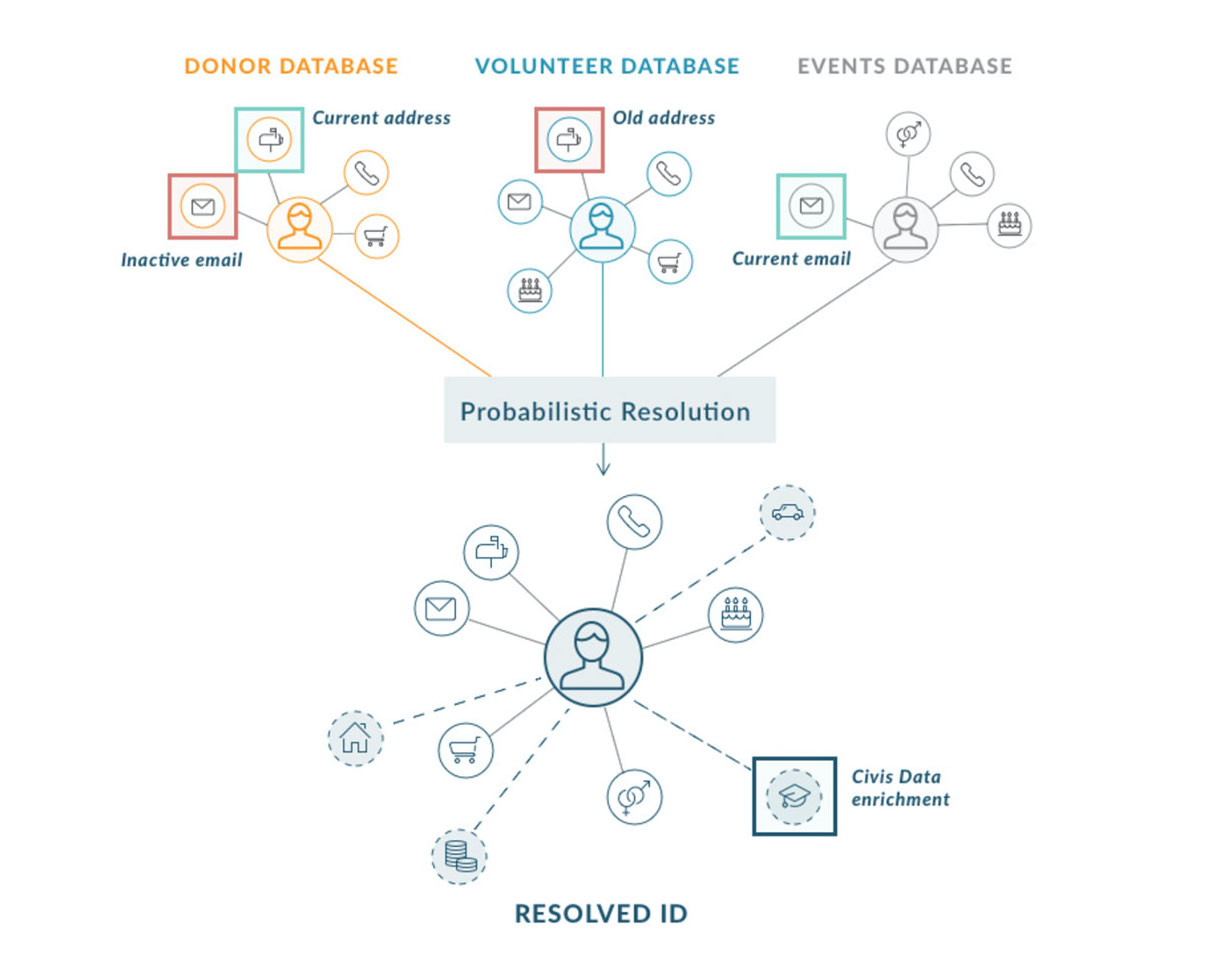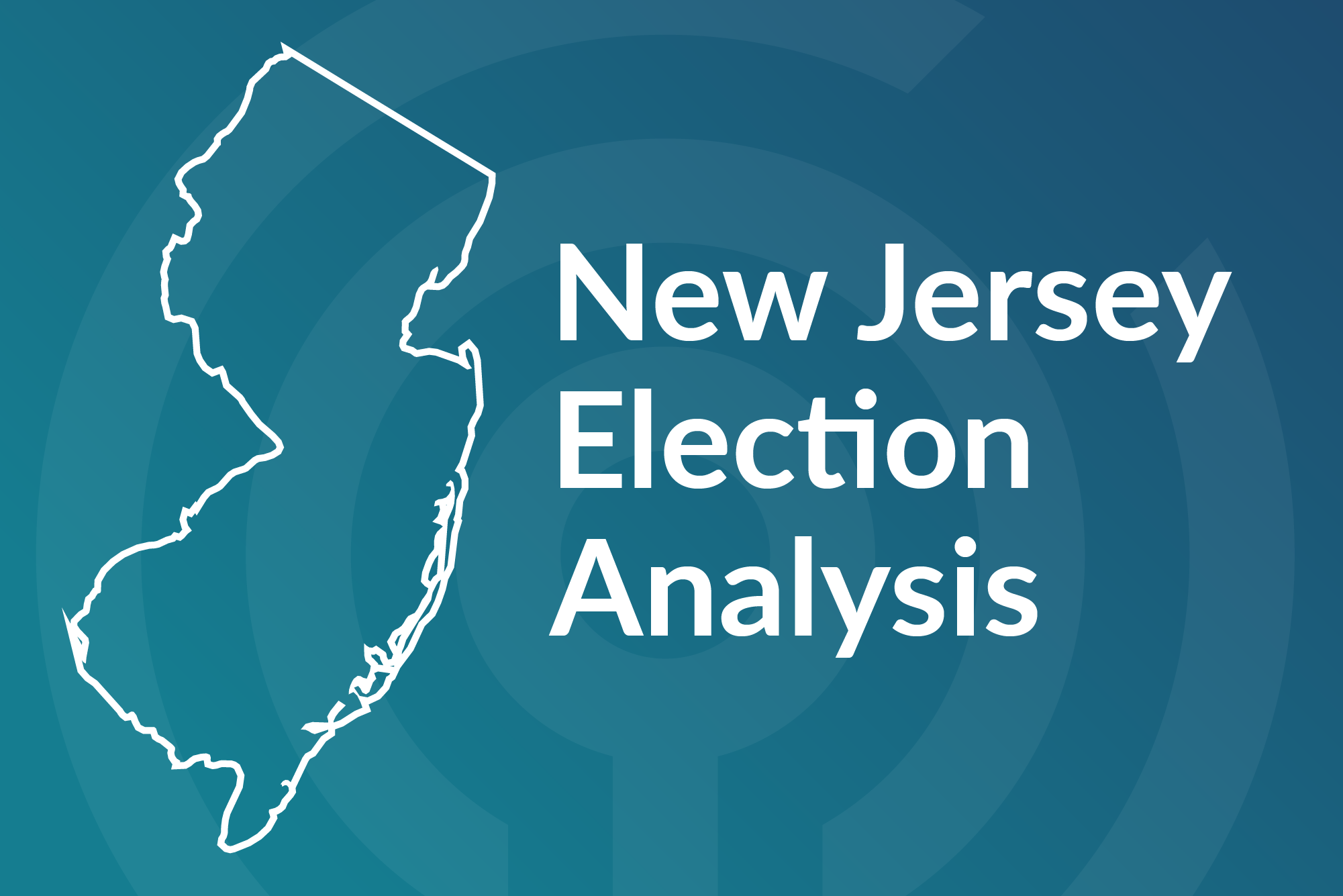Like every nonprofit, you need to grow and diversify your base of support to ensure you’re able to continue your mission-driven work, both now and in the future. This is easier said than done, but the organizations that get it right in 2022 — by utilizing a thoughtful blend of data science and technology, and asking the right questions — will reap the rewards.
Civis IDR: Your Answer to Siloed, Incomplete, Messy Data on the People who Matter Most
Civis Identity Resolution (IDR) is a cloud-based application that links together person-level data from multiple sources to create a unique, stable identifier for each individual. Using a combination of advanced machine learning algorithms and customizable logic, IDR gives teams across your organization a unified understanding of the people in its universe. A single universal ID for each individual empowers nontechnical users to be comprehensive and data-driven about how they understand, segment, and target the people who matter most.
How Our Clients have Benefitted from Identity Resolution





Why we Built IDR
At Civis, we help the world’s most sophisticated nonprofit and advocacy organizations understand and activate their audiences with data science.
Whether the ultimate goal is getting a constituent to vote or to stop sending duplicative mailers, we obsess over how to understand and activate the people that matter most to our clients’ missions.
But data about people can be vast, messy, and siloed. The average user of the Civis Platform works with about 8 different databases or applications that use person-level data, including voter files, CRMs, donor management systems, digital marketing platforms, and social media, often comprising tens of millions of Americans.
What we saw repeatedly while working with our clients is that these different systems rarely talk to one another or easily integrate. There is no field or data column on which to join together information on individuals. This presents a problem for effective analysis and targeting, because people need to make decisions based on a complete picture of their customers, constituents, or citizens.
For example, if analysts have an individual’s political affiliation in a voter file and their donation email address in a CRM, they would need some sort of linking customer ID to connect those pieces of data together to effectively tailor email communication by political affiliation.
Organizations almost never have a common universal identifier, and analysts spend hundreds of hours a year building and maintaining complex technical joining pipelines with varying levels of success.
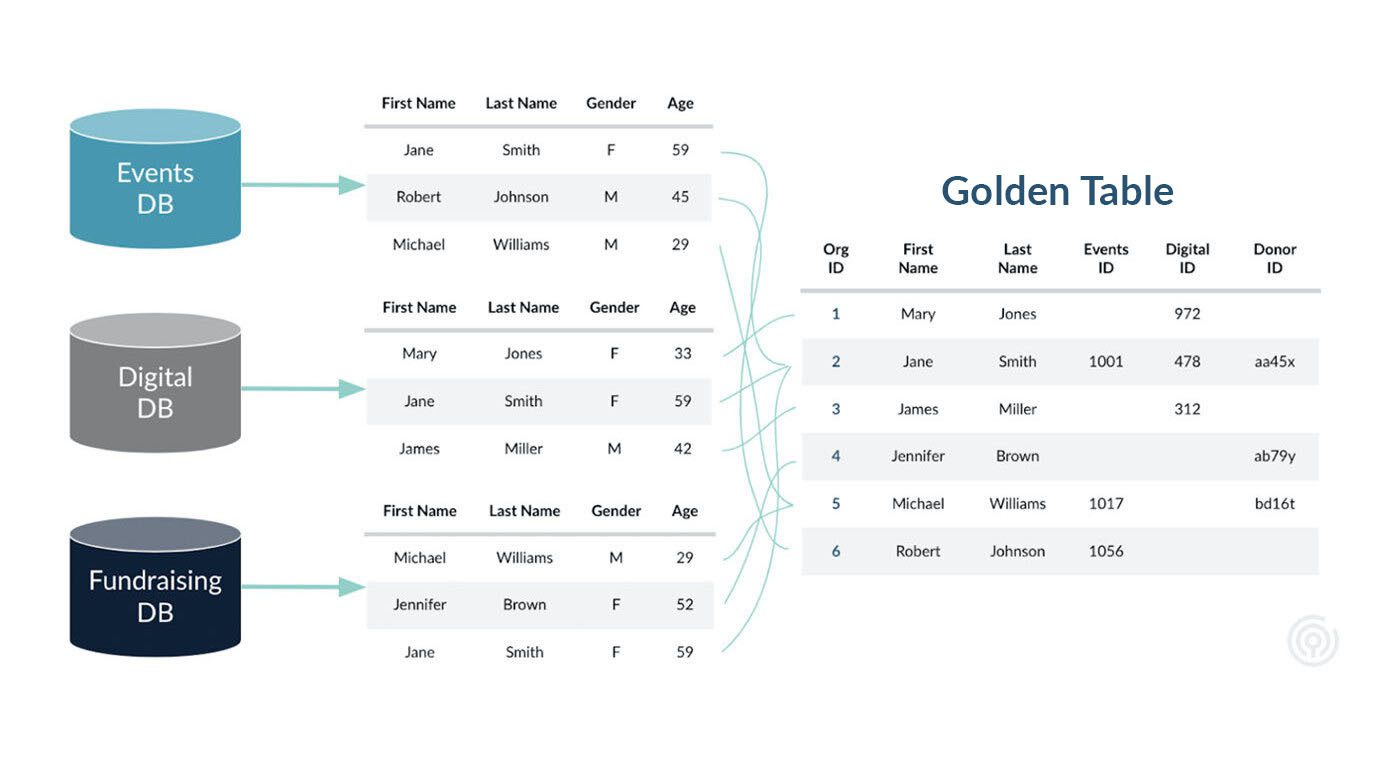
We built IDR to solve these issues. IDR is a comprehensive solution to unifying person-level data and resolving identities across channels. Using IDR provides your teams a stable, universal identifier for every person across your systems, no matter how many duplicates or data sources you may have.
The Civis IDR Approach
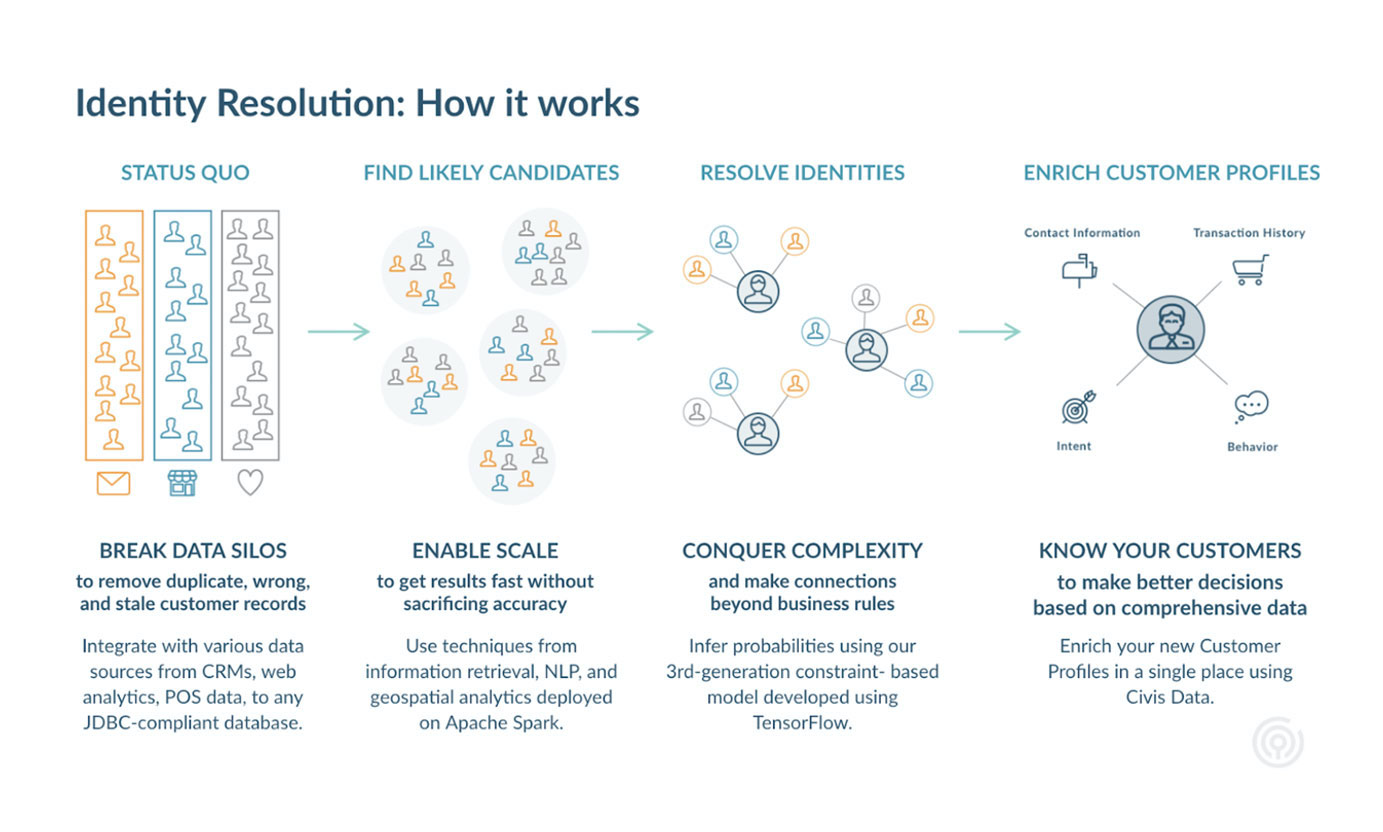
The IDR journey begins with getting your person-level data into the Civis Platform. Leveraging the Civis Data Science Platform, IDR can ingest data from virtually anywhere – including several popular softwares, CSVs and flat files, and other databases. Nontechnical users can easily load data into the app and designate which fields should be used in resolving identities, including names, emails, phone numbers, and other common pieces of personally identifiable information.
Users then have the opportunity to configure advanced options for how IDR resolves identities and creates master IDs across sources. Users can include custom overrides to the machine learning-based algorithms based on what they know about their data. Users can also specify “confidence thresholds” to indicate how confident they would like the algorithm to be to designate two records as a match.
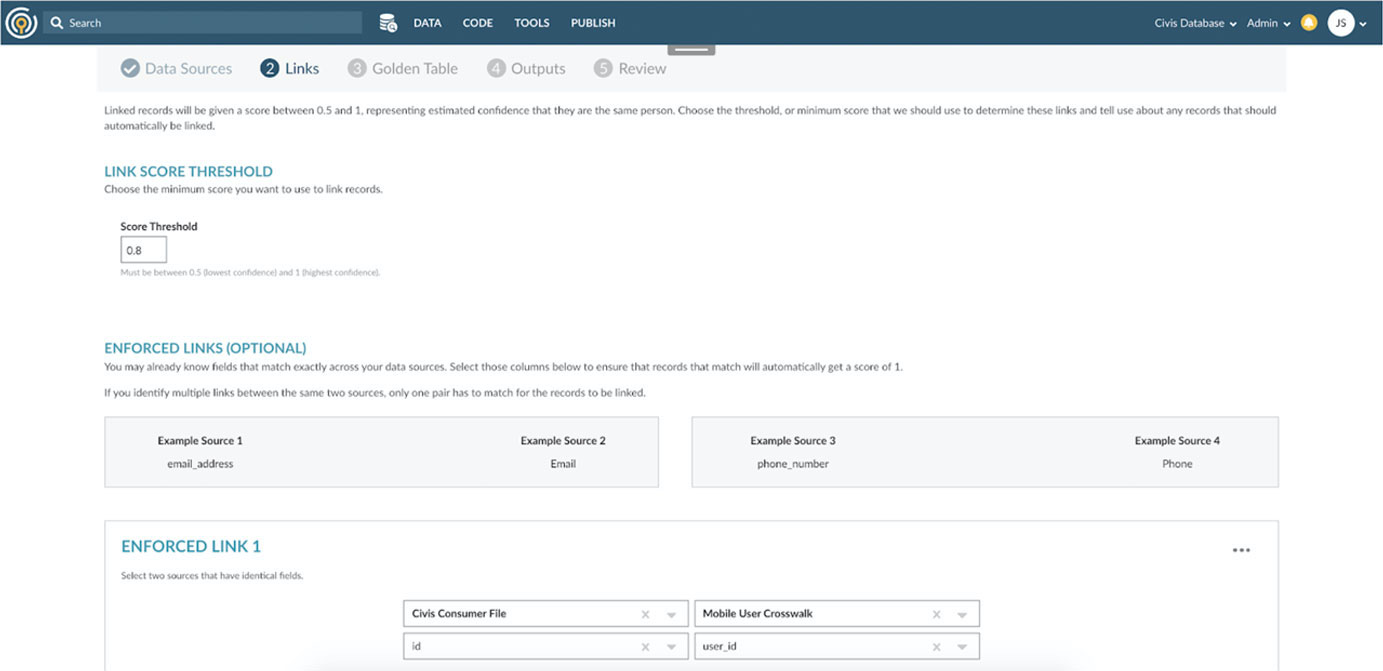
After configuring their sources and advanced options, users can run their IDR pipeline to produce a cluster table, which can act as a crosswalk between all sources. Users can run the pipeline once, or add it to other workflows on a schedule.
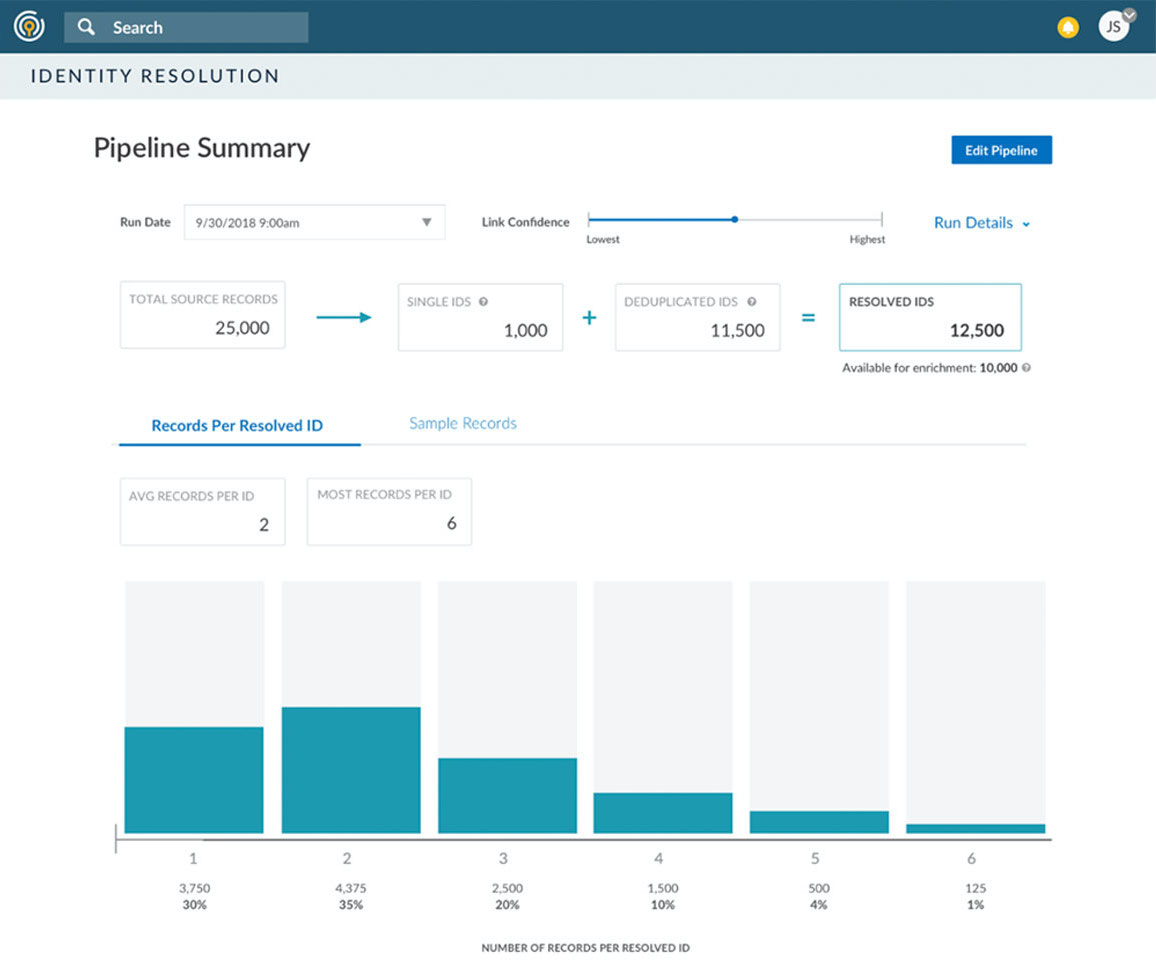
In addition to the core clustering feature of the app, we’ve added in a suite of other features to make the full process of identity management easier and more efficient for data-driven teams.
Transparency features – Users are able to review the mechanics of our algorithms to make judgments on the quality of their data and configuration options.
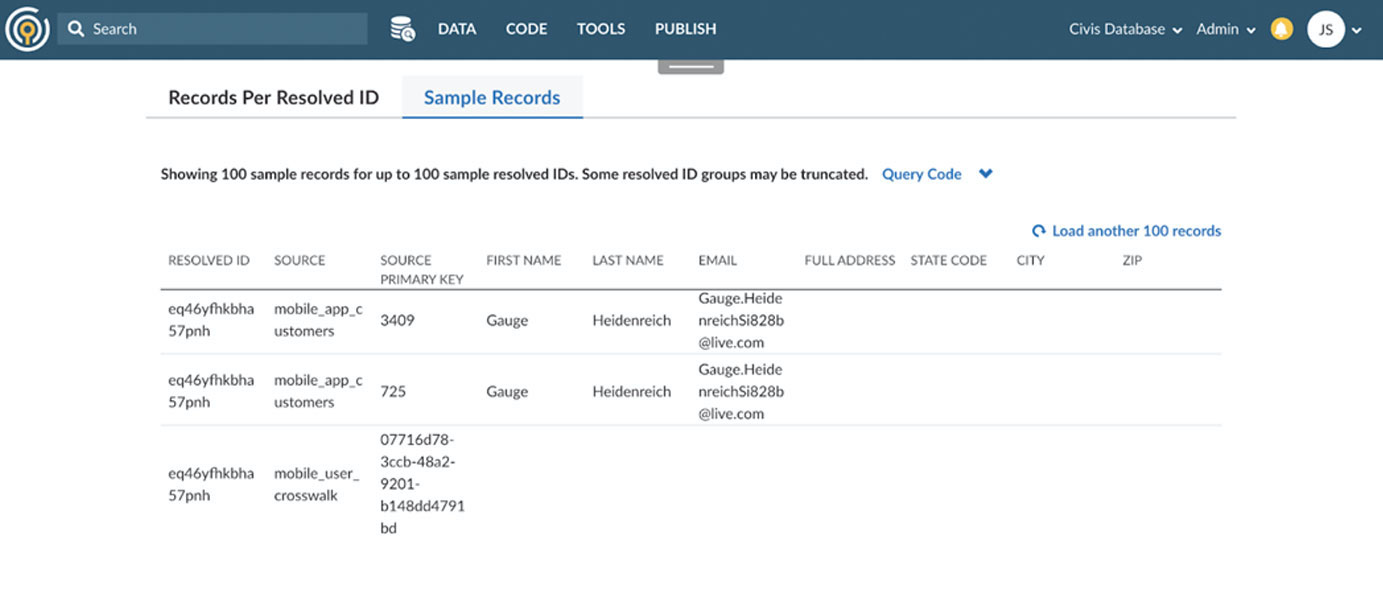
Golden Tables – In addition to the cluster table, IDR provides a way for nontechnical users to easily cut targeting-ready deduplicated lists of people with only the best contact information for each individual attached.
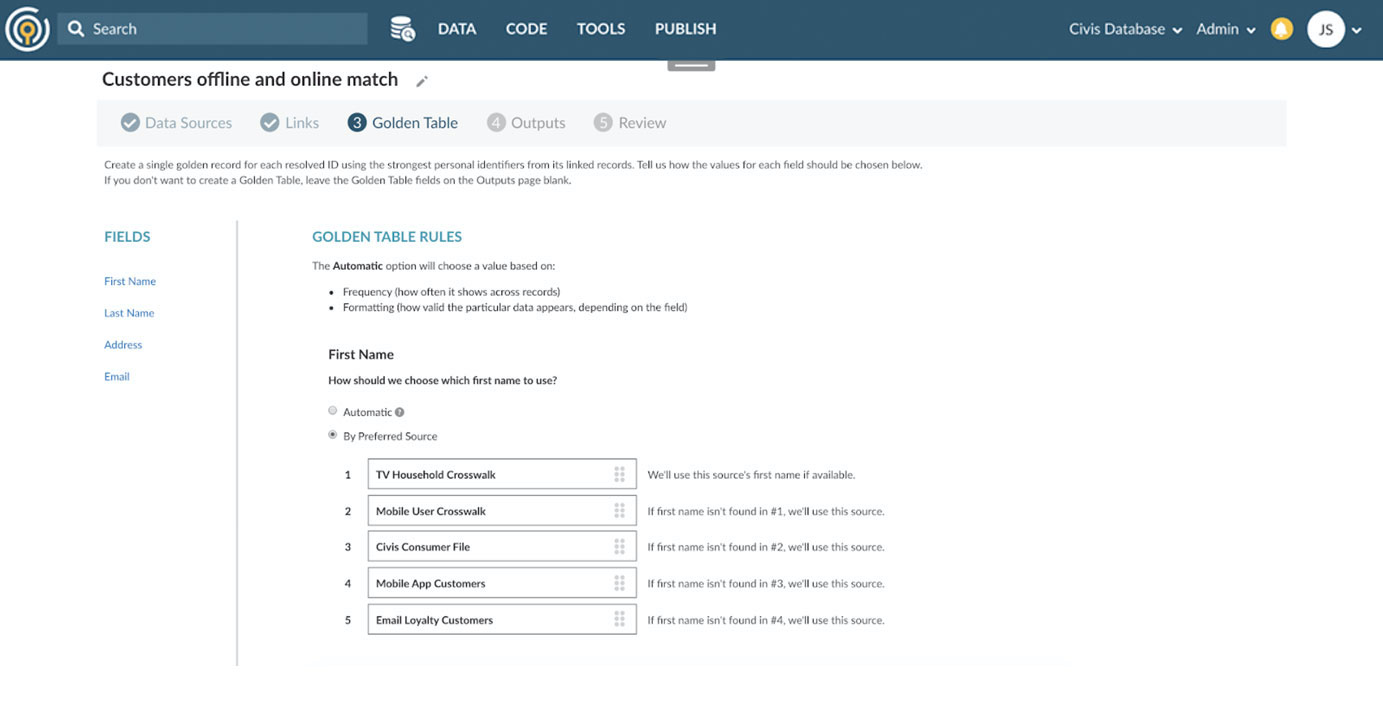
Inclusion of Civis Data – Users have the option to match with proprietary Civis person-level data with their data. The Civis data assets compile individual and geographic level data from dozens of sources and combine it with our best-in-class models to provide an opportunity for users to join in powerful new fields relating to demographics, consumer preference, and contact information.
Full flexibility within the Civis Platform – IDR users can leverage all the features of the Civis Data Science Platform, including the ability to query and manipulate their data sources with SQL and scripts and visualize their data with reports and apps.
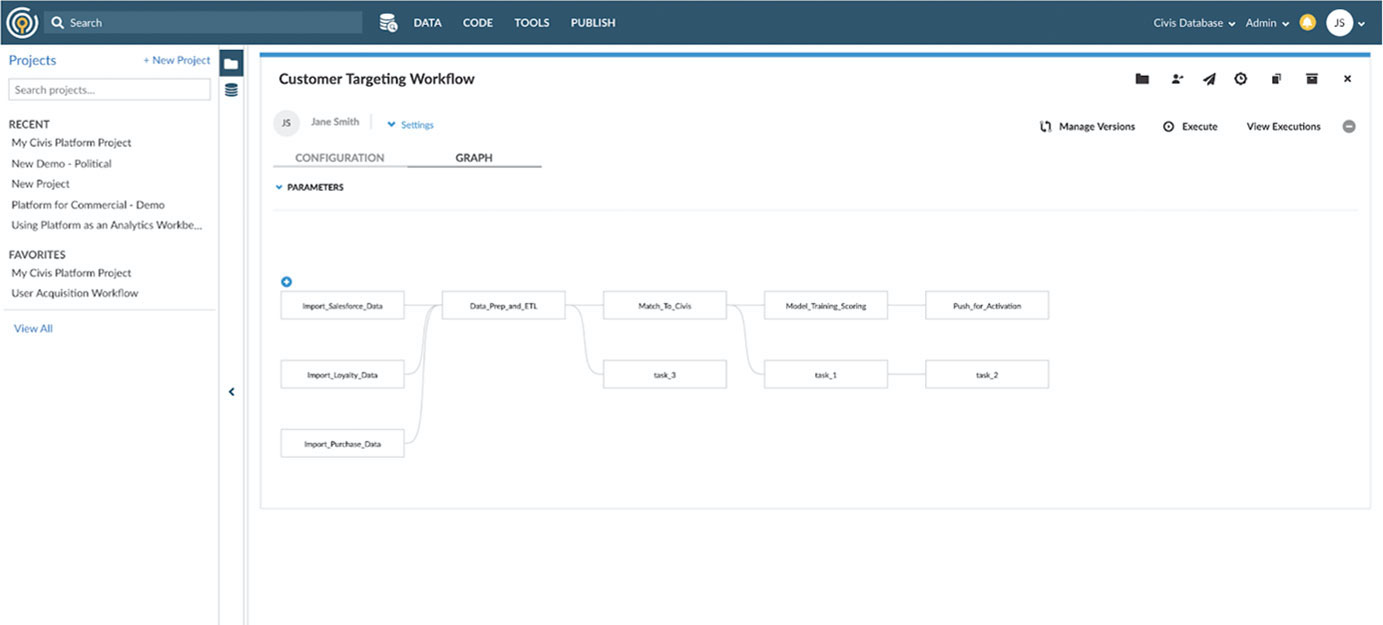
Unify your Data Today
Using the IDR application, organizations are able to dramatically increase their impact; from saving time and money on tedious manual deduplication pipelines, to increasing conversion rates and winning new customers.
